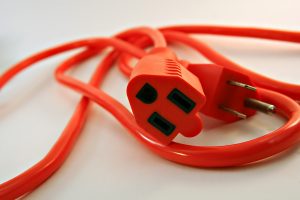 Getting power within the home is easy. You are already set up with outlets, cables, and extension cords. So, all you have to do when you need to put on the TV, use the microwave, or other appliance is plug in and switch on. However, when you need power outside, it’s different. Running power outside depends on a few factors starting from what you need power for, or rather the duration of use.
Getting power within the home is easy. You are already set up with outlets, cables, and extension cords. So, all you have to do when you need to put on the TV, use the microwave, or other appliance is plug in and switch on. However, when you need power outside, it’s different. Running power outside depends on a few factors starting from what you need power for, or rather the duration of use.
Power Outside for Short Term Use
Yes, you can use an extension cord to run power outside if you only need power for a short time. This can include quick activities like trimming the bushes or illuminating a party in your backyard. An extension cord built for outdoor use has you covered from hours to up to two days outside. It’s important you note the use of the term outdoor extension because not all extensions are built for the conditions outside your home. An indoor extension should not be used even for only a few hours outside. Purchase an extension cord identified as an outdoor extension cord.
Also, note that even outdoor extension cords built for use outside should not exceed more than a day or two in use. This is to prevent vital parts of the cord from breaking down and leading to electrical fire or shocks.
Other things to consider when using extension cords for outdoor use
- After ensuring you use an outdoor extension cord, verify the wattage before purchasing it. The cord should be able to accommodate the wattage needs it will be connected to.
- Next is the length of the cord. Electricians would often advise on using long extension cords outside the home. However, there’s some discretion to be applied to how long or how short the cord should be. A short cord might not meet your needs and a lengthy cord can easily become a cause for accidents, tripping, and falling. Choose the right length according to your needs and be sure to clip a longer cord or its excess to the ground or tuck it neatly away from sight and foot traffic.
- Also, ensure that the cord is plugged to a GFCI outlet outdoors. A GFCI outlet grounds the current and protects against shock if the cord is exposed to water.
Power Outside for Long Term Use
When you need power outdoors for more a day or two, an extension cord won’t cut it. Perhaps you need to light up the lawn regularly or something else. In this case, you would need a professional electrician to install outdoor electrical cables and GFCI outlets. This is not a DIY task. The electrician will dig trenches 18-30 inches deep depending on the specifications of electrical code. The cable will be encased in solvent-welded PVC conduit and connected from both ends to GFCI outlets. It requires expertise, tools, and experience. Afterwards, you will have a safe and dependable outdoor source of power.
Contact us at the Electrical Connection for further inquiries or installation of an outdoor power source.




